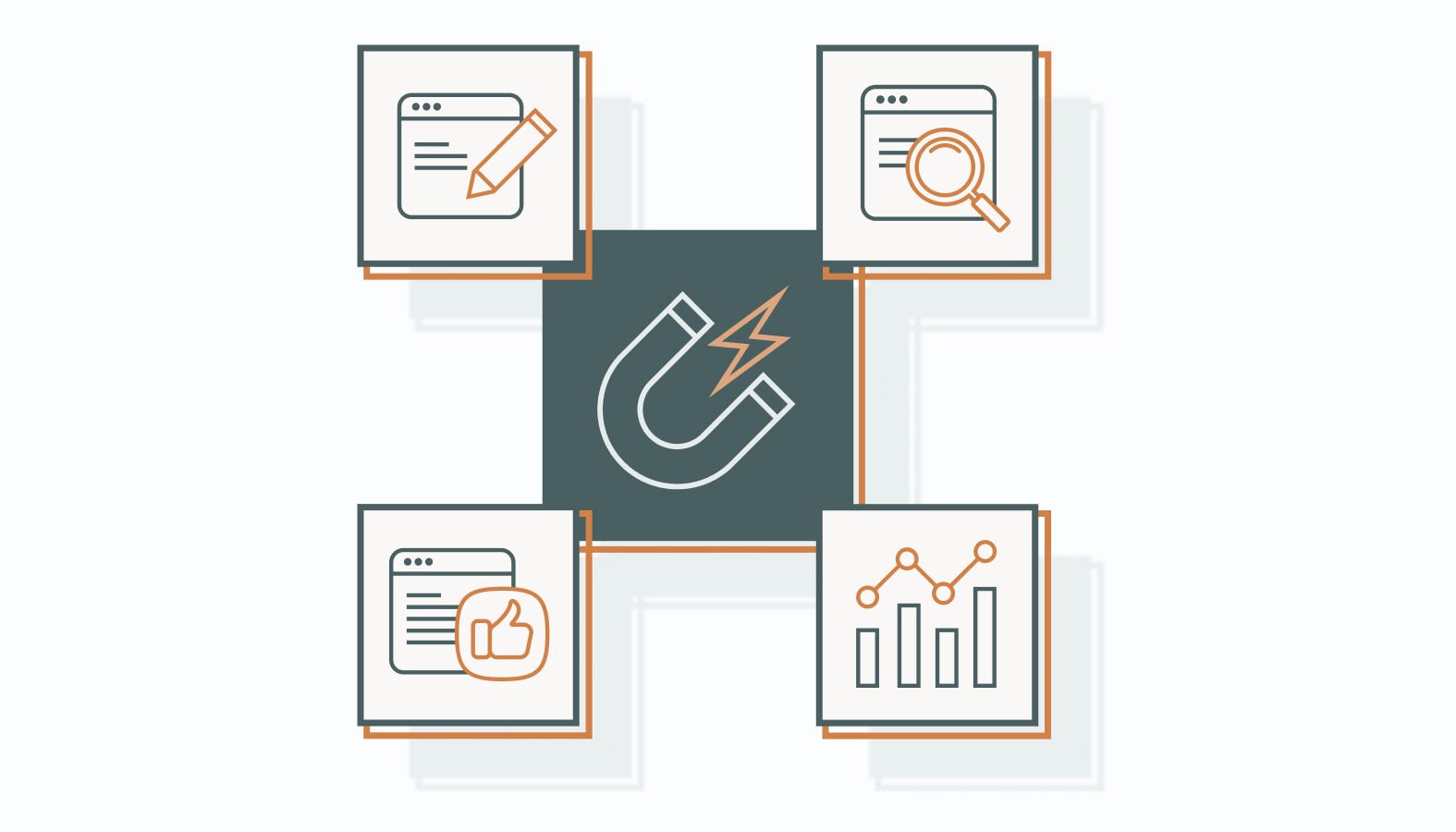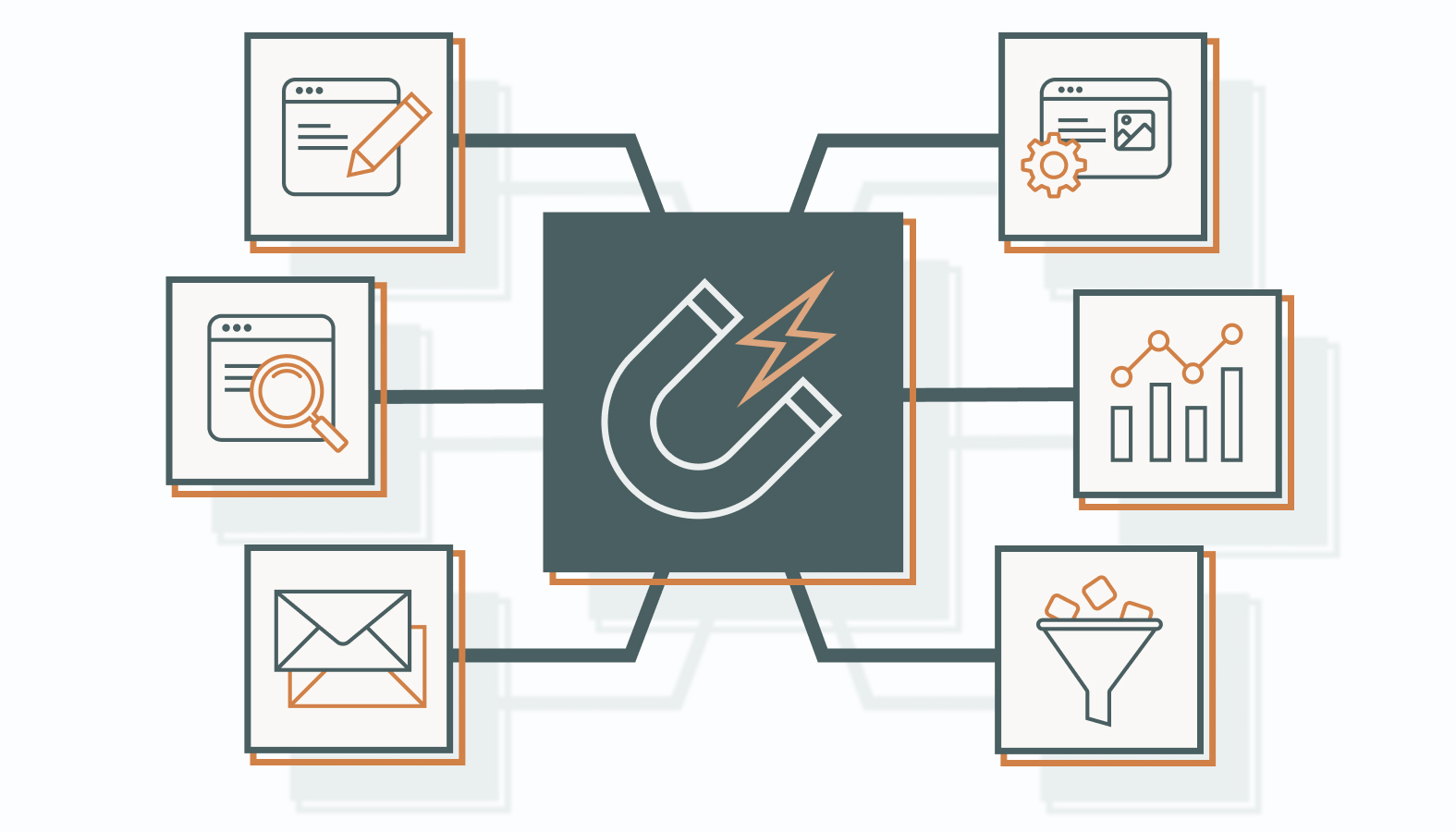Inbound marketing services are transforming how businesses attract, engage, and delight customers. These services include content creation, SEO, social media management, email marketing, and analytics, all designed to provide valuable and personalized experiences to attract potential customers.
Unlike traditional outbound marketing, which uses disruptive tactics like cold calling and pop-up ads, inbound marketing focuses on building meaningful relationships. It addresses the needs and interests of modern, informed consumers, fostering trust and loyalty over time.
This shift toward a customer-centric approach is crucial in today’s market, where buyers seek information and solutions on their own. Inbound marketing meets these expectations by ensuring every interaction is valuable and relevant.
In this guide, you’ll learn how inbound marketing services can help your business attract the right audience, convert leads into loyal customers, and achieve steady growth.
Understanding Inbound Marketing
Inbound marketing focuses on attracting, engaging, and delighting customers. It’s built on the principle that providing value to your audience will naturally draw them to your brand and keep them coming back.
The Shift From Outbound to Inbound
The inefficiency of traditional marketing became increasingly apparent as media consumption habits evolved. Outbound marketing tactics like cold calling, mass emails, and disruptive ads often interrupted and annoyed consumers, resulting in poor user experience and low returns on investment.
Inbound marketing, on the other hand, is driven by the needs and behaviors of the customer. It recognizes that today’s consumers are more informed and have more control over buying. It focuses on creating high-quality content that addresses their pain points and interests to attract prospects naturally. This leads to more meaningful and long-lasting relationships.
Key Components of Inbound Marketing
Inbound marketing is composed of several elements that work together to create a cohesive and effective strategy.
Content Marketing
The backbone of inbound strategy, content marketing involves creating and distributing valuable, relevant, and consistent content to attract and retain a clearly defined audience and, ultimately, drive profitable customer action.
SEO (Search Engine Optimization)
This crucial component ensures your content isn’t only valuable but also visible. SEO strategies increase a site’s visibility in search engine results, making it easier for potential customers to find you when looking for solutions you provide.
Social Media
A tool for both attraction and engagement, social media allows businesses to meet customers where they are and interact with them on a personal level. It’s about building communities and engaging in two-way conversations.
Analytics
Without data, marketing is a shot in the dark. Analytics allow marketers to understand how well their efforts are performing, where they can improve, and how to optimize their strategies for greater impact.
The Importance of Inbound Marketing in Today’s Market
Today, inbound marketing is vital for building long-term customer relationships. Unlike traditional marketing that targets immediate sales with a broad audience, inbound marketing creates deeper connections by providing value and addressing specific customer needs. This customer-centric approach boosts brand loyalty and increases customer lifetime value.
Consumer Behavior and Inbound Marketing
Consumer behavior has changed dramatically in the digital age. Today’s consumers are more empowered and informed, thanks to the vast amount of information available at their fingertips. They’re no longer passive recipients of marketing messages; instead, they actively seek out information, compare options, and make decisions based on their findings.
Inbound marketing fits perfectly with this new behavior. It recognizes that consumers prefer to engage with brands that provide valuable content that addresses their needs and interests.
For example, rather than relying on intrusive ads, inbound marketing creates blog posts, whitepapers, videos, and social media content that consumers find genuinely helpful. This approach not only attracts potential customers but also builds trust and credibility, leading to deeper and more meaningful relationships.
Inbound Marketing vs. Traditional Advertising
When comparing inbound marketing to traditional advertising, the differences in ROI and cost-effectiveness are striking.
Traditional advertising, such as TV commercials, print ads, and billboards, is expensive and difficult to measure in terms of effectiveness. These strategies cast a wide net, hoping to catch the attention of potential customers, but often lead to wasted resources and minimal engagement.
In contrast, inbound marketing is both cost-effective and measurable. It targets specific audiences with tailored content, focusing efforts on individuals more likely to convert. The digital nature of inbound marketing also allows for precise tracking and analytics, enabling marketers to measure campaign performance and adjust their strategies in real time.
Furthermore, the ROI of inbound marketing is generally higher than that of traditional advertising. Studies show that companies investing in inbound marketing generate more leads at a lower cost per lead than those who rely on traditional methods. This efficiency boosts profits and supports sustainable growth by building long-lasting customer relationships.
The 3 Best Inbound Marketing Services Providers
Choosing the right inbound marketing services provider is an important decision for any business hoping to thrive in the digital era.
A good provider not only understands the nuances of inbound marketing but also creates a cohesive strategy that aligns with your brand’s goals and values. They shape your business’s digital presence, and their expertise can greatly impact your online success.
Here’s an overview of three leading providers in the inbound marketing field.
HubSpot
HubSpot is a leader in inbound marketing, offering a comprehensive suite of tools for every aspect of inbound strategy. Known for its pioneering inbound marketing software, it provides an all-in-one platform to streamline marketing, sales, and service efforts. It covers content management, social media marketing, lead nurturing, and analytics.
HubSpot also offers extensive resources and certified training programs, making it a top educator in inbound marketing best practices.
Marketo
Marketo, an Adobe company, is known for its marketing automation capabilities. Aimed at medium to large enterprises, it creates personalized and automated marketing campaigns across multiple channels.
Marketo focuses on lead management, helping businesses efficiently track and nurture leads through the sales funnel. Its real-time personalization and scalability make it a powerful tool for creating a data-driven inbound marketing strategy.
Agency
Agency offers tailored marketing services that focus on honesty and effectiveness. With decades of senior marketing experience, we provide full-stack fractional CMO services across various business sectors. What sets us apart is our commitment to delivering real results and substantial value and building trust.
Our expertise includes strategic planning, content creation, SEO, analytics, and all other components vital to a successful inbound marketing campaign. We avoid overhyped marketing gimmicks, focusing instead on authentic, results-driven solutions.
With Agency, you’re not just acquiring a service; you’re entering a partnership that’s rooted in delivering excellence and fostering sustainable growth. Our approach is clear-cut: we make an impact, keep our word, and build lasting relationships, ensuring value at every step.
Top-Tier Inbound Marketing Services
Inbound marketing services are essential for building a strong digital presence and nurturing leads through every stage of the buyer’s journey. These services include various strategies and techniques that, when executed effectively, create a smooth and engaging experience for potential customers, guiding them from initial attraction to conversion and beyond.
Content Creation and Optimization
Creating content that resonates with your target audience is vital for a successful inbound marketing strategy. High-quality content that addresses the pain points, needs, and interests of your audience attracts visitors and builds trust.
Whether blog posts, videos, eBooks, or webinars, each content should provide value and encourage further interaction with your brand. Optimization ensures this content is easily found by search engines and provides a seamless user experience.
SEO and Keyword Strategy
SEO and keyword strategy are important in driving organic traffic to your website. By understanding what terms and phrases your target audience is searching for, you can tailor your content to meet these needs and improve your chances of appearing in search results.
Effective SEO involves keyword optimization, better site structure, faster loading speeds, and mobile compatibility. A smart keyword strategy ensures your content matches the search intent of your audience, driving more qualified traffic to your site.
Email Marketing
Email marketing remains a powerful tool in inbound marketing, allowing businesses to nurture leads and maintain relationships with existing customers. Through personalized and targeted email campaigns, you can provide valuable content directly to your audience’s inbox to keep them engaged and informed.
Email marketing is particularly effective in guiding leads through the buyer’s journey, from initial interest to final purchase and even post-purchase follow-up, ensuring a continuous and meaningful engagement with your brand.
Social Media Management
Social media management is important in building brand awareness and engaging with your audience in real time. By actively using social platforms, you can share your content, interact with followers, and quickly respond to feedback and inquiries.
This two-way communication builds community and loyalty among your audience. Additionally, social media insights offer valuable feedback on your content and campaigns to help you refine your strategy and better meet the needs of your audience.
Analytics and Performance Measurement
Analytics and performance measurement are critical for assessing the effectiveness of your inbound marketing efforts. Tracking key metrics such as website traffic, conversion rates, and engagement levels can help you see what works and what doesn’t.
This data-driven approach allows you to make informed decisions and optimize your strategies for better results. Tools like Google Analytics, HubSpot, and other CRM systems provide detailed insights that guide your marketing improvements.
Full-Funnel ROI Tracking
Full-funnel ROI tracking gives a complete view of your inbound marketing efforts, showing the value generated at every stage of the buyer’s journey, from awareness to consideration to decision. By measuring ROI for each segment, you can identify the most effective strategies and channels.
This tracking ensures your marketing efforts align with revenue generation goals, enabling you to allocate resources efficiently and maximize profitability.
The Future of Inbound Marketing Services
Inbound marketing is continually evolving, driven by technological advancements and shifting consumer behaviors. Staying ahead requires constant innovation and adaptability.
Technological Advancements and Inbound Marketing
AI and machine learning are transforming inbound marketing. These technologies enable predictive analytics, personalized content, and automated customer interactions.
AI tools analyze vast amounts of data to identify patterns and trends, helping marketers make better decisions and deliver highly relevant content. Advancements in chatbots and voice search are also changing how consumers interact with brands, so marketers need to integrate these tools into their strategies.
Sustaining Growth Through Inbound Efforts
To sustain growth, businesses must continuously learn and adapt to changes. Inbound marketing isn’t static; it needs regular updates and refinements based on new insights and technologies.
Marketers should invest in ongoing education, attend industry conferences, and stay current with emerging trends to stay competitive. By fostering innovation and flexibility, businesses can ensure their inbound marketing efforts remain effective and meet evolving consumer expectations.
Closing the Loop on Customer Acquisition
We hope this guide has given you valuable insights into inbound marketing services and how they can transform your approach to attracting, engaging, and delighting customers.
Whether you’re just starting out or looking to refine your strategies, inbound marketing helps build meaningful and lasting relationships.
If you want to see how these strategies can be tailored to your needs or explore the potential of inbound marketing further, we’d love to help. Our experts are ready for an open and honest conversation about your goals and how we can support you—no pressure, just genuine insights.
Schedule a candid conversation with one of our experts to discuss how inbound marketing can benefit your business and ensure sustained growth in today’s market.








